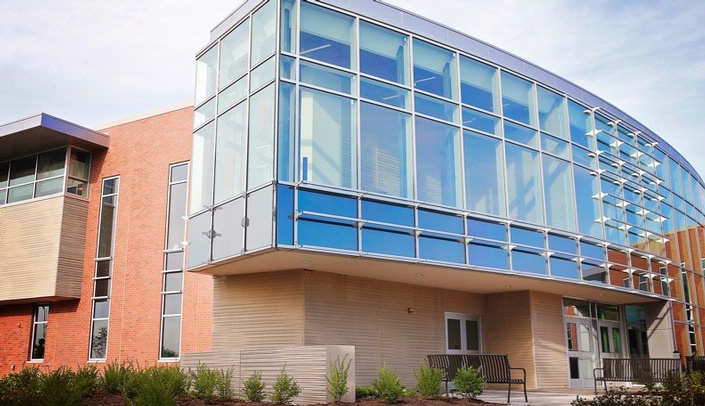UNMC College of Allied Health Professions students in Kearney will be part of an effort next year to provide health care to underserved Kearney-area residents who have no insurance and do not qualify for Medicaid or Medicare.
A memorandum of understanding between UNMC’s College of Allied Health Professions, HelpCare Clinic in Kearney and the UNMC SHARING Clinic board will allow UNMC students and faculty from all UNMC colleges to provide community health services at the HelpCare Clinic.
HelpCare Clinic, which opened in April near Good Samaritan Hospital, serves those who live or work in Buffalo or Kearney counties. They include those with low income or people who aren’t covered by health insurance, Medicaid or Medicare. The clinic provides outpatient primary medical care, preventive medical services, noncritical acute care and behavioral health services.
Eight physician assistant students in their second semester at the Health Science Education Complex in Kearney will be the first allied health students to participate. Ultimately, other allied health students will participate, including physical therapy, clinical laboratory science, medical nutrition and sonography students. The students will be supervised by faculty members.
“This will be a great experience for our students and it’s one way for them to become more involved in the community,” said Greg Karst, Ph.D., executive associate dean for the UNMC College of Allied Health Professions. “They will be exposed to different cultures and learn that doing pro bono work is an important professional responsibility. It’s a value we instill early on, and it’s great to see it modeled by working with other health professionals.”
Though the clinic will not be run by students like the UNMC SHARING Clinic in Omaha, the SHARING board will support the Kearney students through its administrative structure and fundraising efforts. The clinic operates using grant funds and donations.
Julie Weir, president of the HelpCare Clinic board, said the partnership is a win for both the clinic and students. “Student involvement will benefit our patients,” Weir said. “Students always have new ideas and will be able to spend time focusing on patient needs.”
